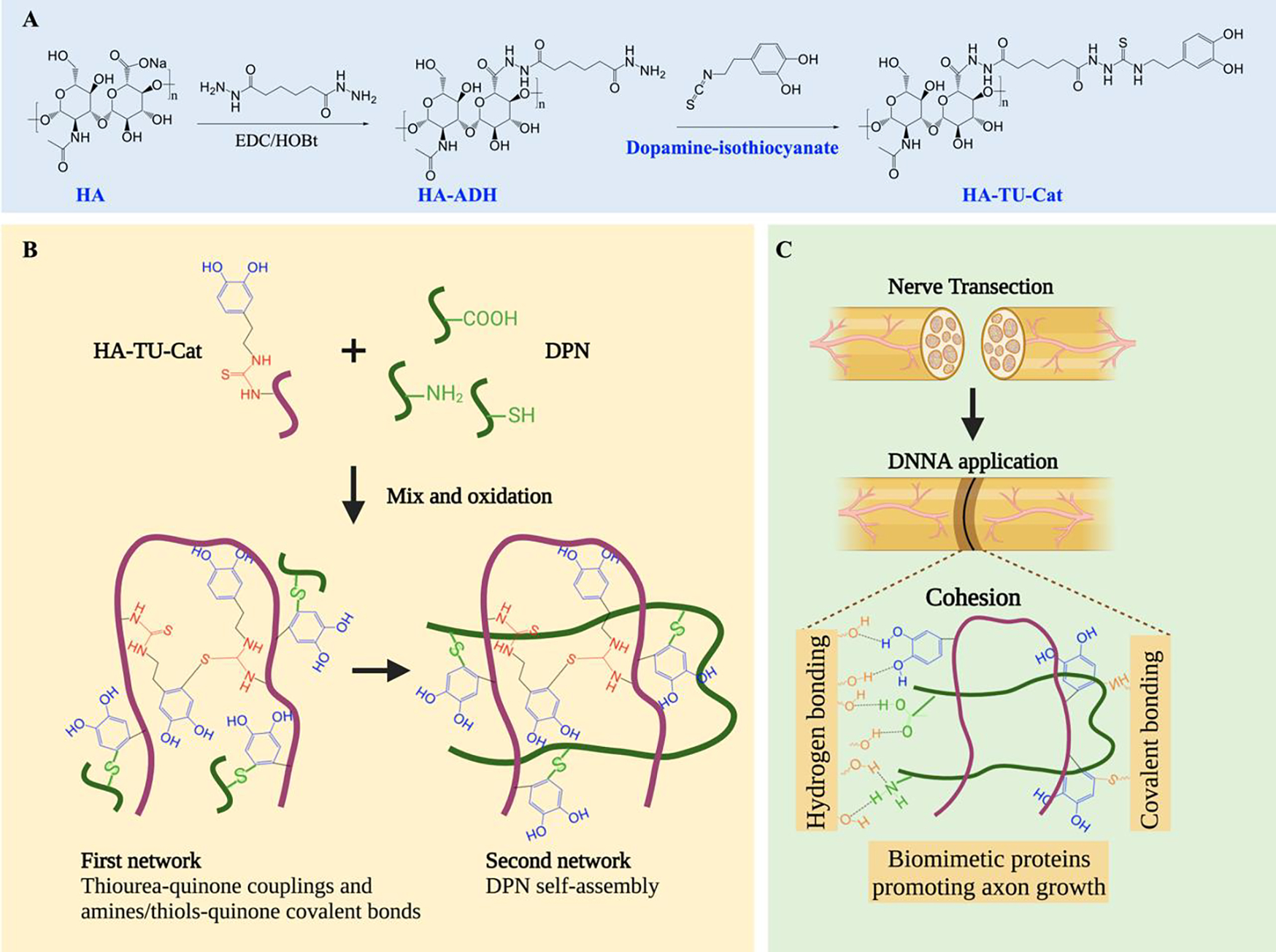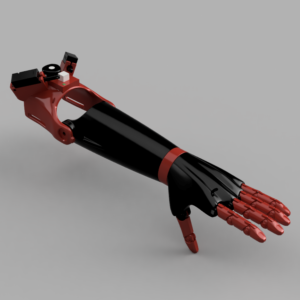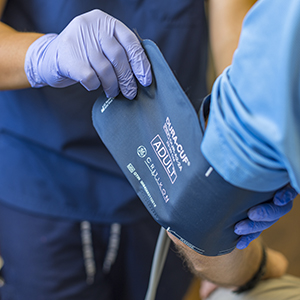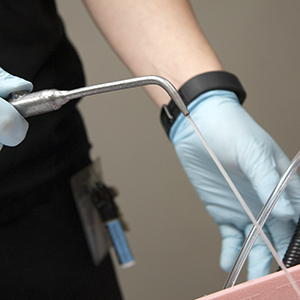Description
Adhesive could replace standard treatment of nerve transections
When a nerve is cut or divided, the transection can lead to pain, numbness, and loss of mobility. Current treatments for transected nerves often result in poor recovery for 33 percent of patients post-surgery.
However, Bin Duan, PhD, at the University of Nebraska Medical Center, has developed a groundbreaking nerve adhesive that could heal patients more effectively. This new adhesive, designed as an alternative to traditional nerve sutures, significantly reduces scarring and enhances nerve regeneration. Faster nerve regeneration can minimize long-term damage, such as muscle atrophy, permanent weakness, and chronic pain.
Using glue structures modeled after the same chemical that mussels use for underwater adhesion, the biomaterial forms bonds strong enough to withstand forces that might otherwise disrupt the repair. The direct nerve to nerve connection promotes faster nerve regrowth and debris clearance. The new nerve glue also promotes stronger nerve reconnection and reduces secondary damage normally caused by nerve sutures.
Preliminary testing has shown it is safe and effective in mice and rabbit models.
To learn more about this technology, contact Tyler Scherr, PhD, at tyler.scherr@unmc.edu or 402-559-2468.






